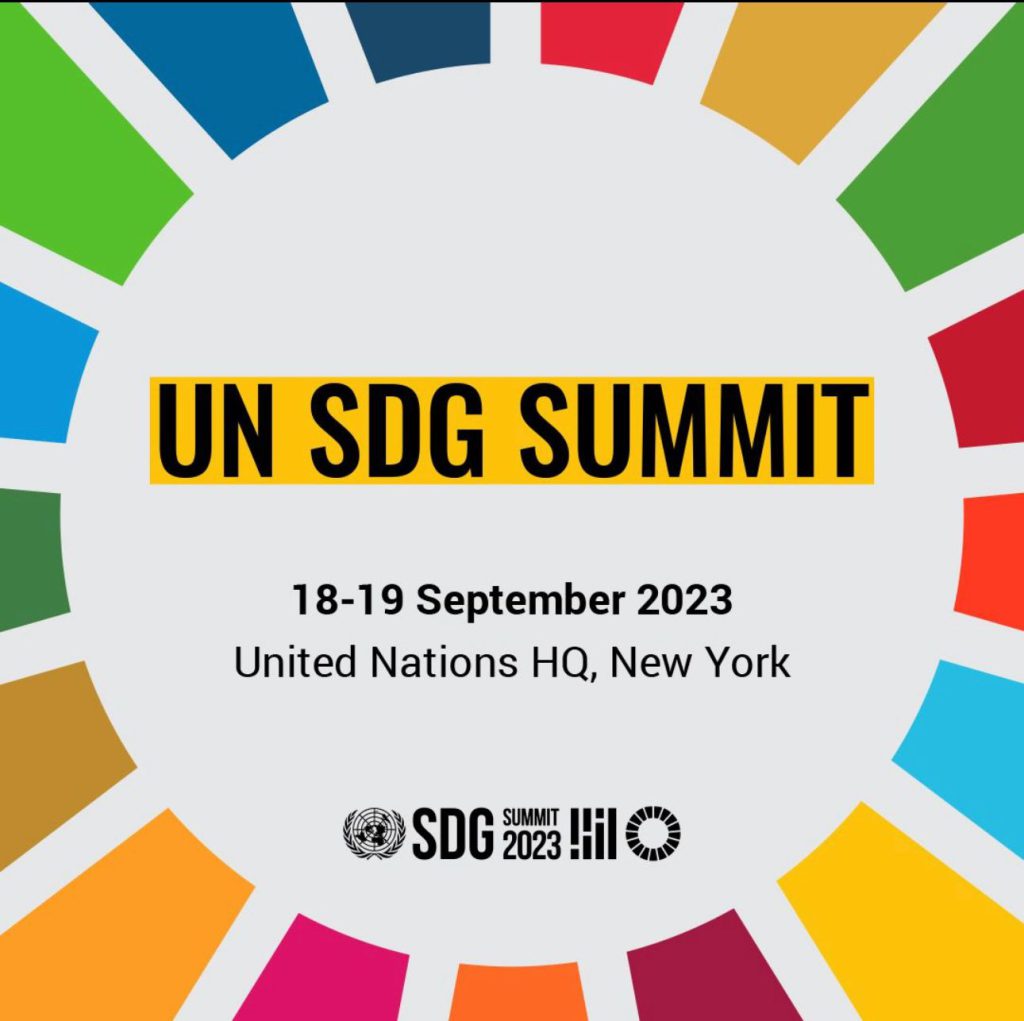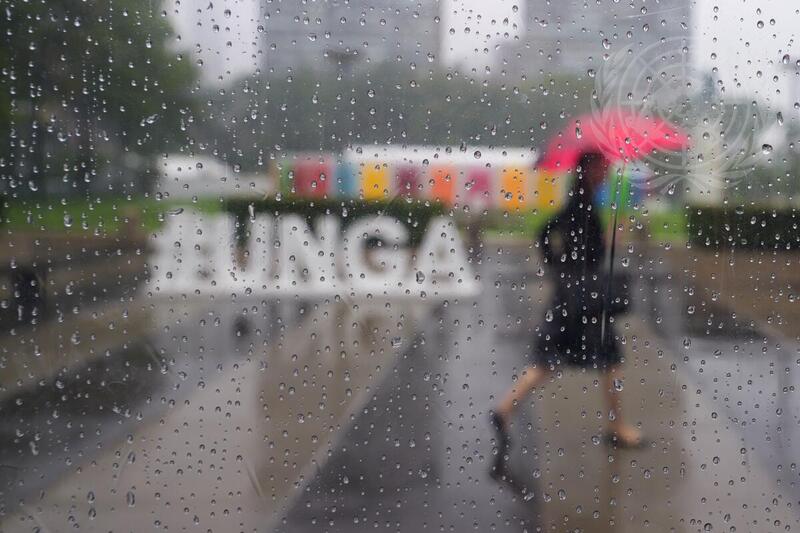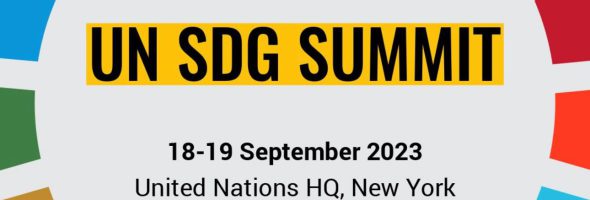This blog was written as leaders from around the world have gathered in New York US president Joe Biden is there, as well as EU president Charles Michel and the president of the African Union Azali Assoumani, and Volodomyr Zelenskyj from Ukraine.

They have gathered to attend the 78th session of the general assembly – and to take part in the SDG Summit, where SDG is short for the sustainable development goals.
An internal bureaucratic exercise?
The Agenda has recently been called an “internal bureaucratic exercise” in an editorial in Swedish conservative newspaper Svenska Dagbladet. But it is in fact quite revolutionary. For example, under goal number 1 – No poverty – the world has to “By 2030, eradicate extreme poverty for all people everywhere…”
The Agenda has recently been called an internal bureaucratic exercise in an editorial in Swedish conservative newspaper Svenska Dagbladet. But it is in fact quite revolutionary.
And what may be even more revolutionary is that world leaders also have promised to reduce inequalities, under goal number 10: “Adopt policies, especially fiscal, wage and social protection policies, and progressively achieve greater equality”.

But is it also naive? Overly idealistic? It is clear that the governments of the world had great ambitions when they adopted the SDGs. However, the world certainly has not managed to live up to them as yet. We are less than seven years away from 2030, and one report after another has revealed that we are nowhere near reaching the goals. On September 18th, at the start of the SDG Summit, UN Secretary General Antonio Guterres wrote on LinkedIn that “Today, only 15% of the targets are on track, and many are going in reverse.”
Can communication technologies save us?
The team behind this blog are all students of Communication for Development at Malmö University. We represent diverse backgrounds, but have in common the belief that communication can make a difference.
Communication, if done well, has the potential to increase knowledge of the world around us, inform decisions, strengthen ties between people and enable us to walk the path to 2030 together. Digital media development has in recent years exploded, providing us with possibilities that seem endless.
With huge social media in the hands of capricious billionaires, the platforms, which were perceived to connect us, can actually be used as tools to manipulate audiences and incite polarization within societies.
It also, however, can do the opposite. With huge social media in the hands of capricious billionaires, the platforms, which were perceived to connect us, can actually be used as tools to manipulate audiences and incite polarization within societies. It has become the hotbed of trolls and misinformation. In addition, the digital divide carries the risk of enhancing inequalities rather than reducing them.
During the coming four weeks, join us as we explore and highlight to you how information and communication technologies are used to advance the SDGs and thereby contribute to the achievement of the Agenda 2030 for Sustainable Development.
Read more about us on this page.
We look forward to discussing this topic with you!
—
This is a group post by IB, RLC, CPH, WW and AC

